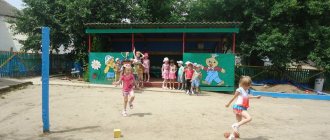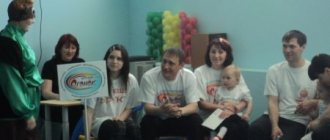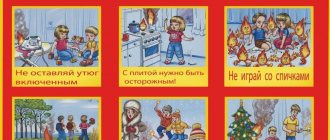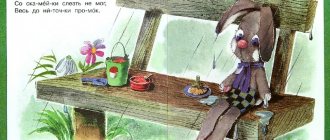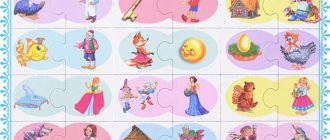Development of a joint project of the teacher, children and parents
Family and kindergarten are the two most important institutions for the socialization of preschool children. In light of the implementation of the Federal State Educational Standard for Preschool Education, the relationship between kindergarten and family is defined by the concepts of “cooperation”, “interaction”, “partnership” .
Project activities, due to their specificity, are focused on creating conditions that reveal the creative and intellectual potential of preschool children, and are aimed at dialogical interaction between children, parents and teachers. Working on projects promotes self-knowledge and self-development of all participants in the pedagogical process.
Photo – Mezen Pedagogical College
Module B. “Interaction with parents (legal representatives) and employees of an educational organization” Task 1. Development of a joint project of the teacher, children and parents, preparation of a presentation about the stages of the project and its results using ICT for speaking about the project at a parent meeting.
Based on the characteristics of project activities in preschool educational institutions, participants were offered a task aimed at the following result:
1. A completed project passport for all subjects of the educational process of the preschool educational institution in accordance with the given topic (on paper).
- Presentation of the stages and results of project activities for all subjects of the educational process of preschool educational institutions using ICT, designed in accordance with a given topic, taking into account the presentation for an audience of parents of preschool children.
- Demonstration of the presentation to an audience of parents (volunteers with an acting task, voicing pre-formulated questions (30%) about the presentation for the participant during the presentation).
Photo – Mezen Pedagogical College
All competitors professionally and creatively approached the task, which required careful and fairly lengthy preparation (2 hours) and a brief presentation of the results of the work done as part of a fragment of the parent meeting.
It was amazing to see how the teachers managed to comprehensively, succinctly and vividly present all the stages and aspects of the jointly implemented project in the allotted 5 minutes.
The presentations of the competitors clearly demonstrate that they are fully proficient in the skills of implementing project activities in a preschool educational institution, understand its essence and significance, know how to methodically correctly organize work at the relevant stages of the project, distribute roles and responsibilities between participants.
Photo – Mezen Pedagogical College
The holiday of February 23 was chosen as the theme for joint activities, which was due to the time of year and the desire to increase the sense of patriotism in children. Therefore, this project had not only a practical result, but also important educational significance. Type of project: cognitive-creative, short-term in time (2 weeks), conducted in the senior group. Project products: matinee, exhibition of children's postcards, sports festival, wall newspaper, photo album “We Serve the Motherland.”
The competitors demonstrated project presentation skills, the ability to systematize and present information in various forms, including quantitative and statistical data in the form of diagrams.
Photo – Mezen Pedagogical College
It should be noted the warm, trusting relationship between teachers and parents, imbued with a mutual sense of gratitude. The teachers presented parents with letters of gratitude and tickets to the Local History Museum.
Volunteers plausibly and organically acted as parents and asked relevant questions: “What difficulties arose during the implementation of the project? What are the prospects for our future work? Will there be more joint projects? Have children begun to show interest in historical places?” The teachers' responses were only positive!
In general, we can say that an ideal model of interaction between the three sides of the educational process in kindergarten was presented during the implementation of joint project activities. And this is exactly the model our graduates will bring to life!
Mezen Pedagogical College
The importance of joint activities between a child and an adult
Modern social life has led to the need to introduce new teaching standards and requirements for education, to create innovative pedagogical technologies that will contribute to the individual development of the child’s personality, the formation of his independence and creative activity. All this requires not only the conscious and active participation of children, but also the involvement of their parents in various activities.
Are you an expert in this subject area? We invite you to become the author of the Directory Working Conditions
Currently, in pedagogical practice there is a demand for including various types of joint activities of children and adults in the pedagogical process. This is due to the fact that joint activities contribute to the activation of search and creative activity in children of different ages.
Definition 2
Designed joint activity is one of the types of pedagogical technology that involves independent or collective creative work of children and adults.
At the heart of any joint activity project is a problem, the solution of which requires its participants to independently search for the necessary information, master new things, generalize and analyze the results obtained. As a result of this activity, participants receive a specific product.
Note 1
The relevance and popularity of the designed joint activity lies in the fact that it combines various areas of education.
Finished works on a similar topic
Course work Designing joint activities of adults and children based on pedagogical technologies 410 ₽ Abstract Designing joint activities of adults and children based on pedagogical technologies 270 ₽ Examination Designing joint activities of adults and children based on pedagogical technologies 230 ₽
Receive completed work or specialist advice on your educational project Find out the cost
Recently, joint activities are increasingly used in educational institutions, and therefore teachers are constantly looking for ways to improve and update them.
The topics of organized joint activities between children and adults are very diverse. Moreover, it can be organized both in the process of educational activities and during events outside educational activities. Often parents take part in precisely such events. Teachers involve parents in joint activities within the framework of parent-child projects.
The significance of joint activities between adults and children lies in the fact that modern children have a reduced interest in “live” communication. This is due to information progress, which has crowded out real-life communication from children’s lives. Children of preschool and school age prefer virtual communication to communication with adults and peers. This negatively affects the overall development of children, and especially their speech development.
In addition, the significance of the joint activity of parents and children lies in the fact that modern parents pay extremely little attention to their children, shifting the entire burden of upbringing and education to the educational institution. This is why it is so important to design joint child-adult projects within educational organizations, involving the family in joint creative activities.
Project for interaction with parents in kindergarten
Project of interaction with parents of a preschool educational institution “Journey to the land of good relations”
Author: Belobaeva Elena Valerievna MBDOU “Combined Kindergarten No. 47”, Achinsk, Krasnoyarsk Territory Project of interaction with parents (legal representatives) of pupils with a social and personal orientation.
Relevance of the project Social development in preschool childhood is aimed at developing in a child age-appropriate social competence as a basic value of a child’s personality. Family and preschool are two important institutions for the socialization of children. And although their educational functions are different, their interaction is necessary for the comprehensive development of the child. Involving parents in solving problematic problems of family education encourages them to analyze educational techniques, search for a more appropriate method of parental behavior, exercises the logic and evidence of pedagogical reasoning, and develops their sense of pedagogical tact. Analysis by parents of children's behavior helps them see their teaching experience from the outside, provides an opportunity to reflect on the motives of the child's actions, and teaches them to understand them from the point of view of his mental and age-related needs. However, there are a number of problems that do not allow ensuring an atmosphere of goodwill and comfort in communication between parent and child, namely: - the peculiarity of the modern family is associated with a reduction in free time for parents, overload at work - all this leads to a deterioration in their physical and mental condition, increased irritability, fatigue, stress; — material values dominate over spiritual ones, so children have distorted ideas about kindness, mercy, generosity, and justice. Children are marked by emotional, volitional, spiritual immaturity; — parents habitually throw out their emotions on their children, while blaming the child for both external problems and domestic troubles. The child finds himself in a situation of complete dependence on the mood, emotions and reactions of his parents, which affects his mental health. Based on the above, a project of interaction with parents with a social and personal orientation “Journey to the Land of Good Relations” has been developed. Goal: Increasing the competence of parents on issues of social and personal development of children. Objectives: - establish cooperation between the educational institution and the family; — to activate the educational skills of parents and direct them to constructive partnerships with the child; — to guide parents towards the revival of moral and ethical norms and traditions of the family way of life. Project participants: preschool educational institutions specialists, teachers, parents, children Implementation period: within a year Place of implementation: 663153, Krasnoyarsk region, Achinsk city, 24 quarter, building 13, MBDOU “Combined kindergarten No. 47”. Project type: practice-oriented Project support resources: Organizational:
The activities of project participants are regulated in accordance with the basic general educational program of preschool education of MBDOU "D/s No. 47", the annual plan and the project implementation plan.
Informational:
- scientific-methodological, fiction;
- mass media; - Internet resource. Staffing:
- administration of the preschool educational institution;
- educators; - musical director; — physical education instructor; - teacher - psychologist. Financial support:
- budget of the Institution;
- Parents' charitable funds. Logistics:
- multimedia projector, - screen, - laptop, - music center.
Expected result: 1. Creation of a system of comprehensive work with parents. 2. Psychological and pedagogical education of parents on issues of social and personal development of children. 3. Generalization of the experience of family education. Principles of interaction between the teacher and parents: - the ability to create a friendly atmosphere conducive to dialogue; — attention to the problems of parents, their subjective experiences; — ability to provide psychological assistance; — focus on stimulating parents’ self-education; - the ability to see the slightest achievements and instill confidence in success; - a positive attitude to talk with parents about any problem; — manifestation of pedagogical tact and moral and ethical standards when working with parents; - sincerely want to help in a difficult pedagogical situation; - inadmissibility of comparing the guilty child with others. When considering a conflict situation, analyze the situation itself, and not the personal qualities of the child and his parents. Forms of work with parents: - questionnaires;
— consultations; — viewing direct educational activities; - conversations; - Parent meeting; - workshop; — information sheet, reminders, recommendations; — joint events: holidays, entertainment, competitions; - Open Day; - family presentation. Project implementation stages:
Stage 1 - research
- “Do you know your child?”
— questioning; — “My child and his individual characteristics” - questionnaire - essay; - “Relationships in the family” - test - survey; — “Family traditions and norms” — survey; — “Helpline” - promotion. Stage 2 – preparatory
– processing of the received information;
— selection of visual propaganda; — study of methodological literature; — development of a plan for joint activities. Stage 3 - practical
Information block: - “Five recipes for getting rid of anger” - memo;
— “What is a culture of communication?” — information sheet; - “Personal example is the best way to instill good manners in a child” - memo; — “The authority of parents is a necessary condition for proper upbringing” — consultation; — “How to introduce children to norms of behavior” — consultation; - “Sow a habit...” - information sheet; — “The game is a school of moral behavior” — consultation; — Individual consultations at the request of parents. Practical block: - “Discussing problematic situations” - workshop (September); - “The moral law is within us” - parents’ meeting (October); — “Friendship lives among us” — open day, viewing of direct educational activities (November); — “Holiday in our house” — creative workshop (December); — “Let's talk about politeness” — round table (January); — “Young Games” — sports competitions with the participation of dads (February); — “Our mothers are always jacks of all trades” — culinary duel (March); - “Family of the Year” - competition - presentation (April): exhibition of family photographs; exhibition of joint works; filling out a family (genealogical) tree; a story about family traditions; games, competitions, performances. — Performance assessment (May). Stage 4 – final
– assessment of the effectiveness of the project. Studying parents' satisfaction with the work of an educational institution: - questionnaire method - conversations with parents. Increasing the level of activity, psychological and pedagogical culture of parents: - taking into account the participation of parents in various events; — observations; - conversations. Determining the level of activity of the teacher with parents. — use of self-assessment sheets.
We recommend watching:
Parent meeting on traffic rules in the preparatory group Creative workshop in kindergarten “Making laboratory materials with your own hands” Lesson with parents in kindergarten. Abstract Literary quiz on fairy tales for kindergarten
Similar articles:
Plan of interaction with families of children of the middle group of general developmental orientation
Methodological recommendations for drawing up an individual development program
